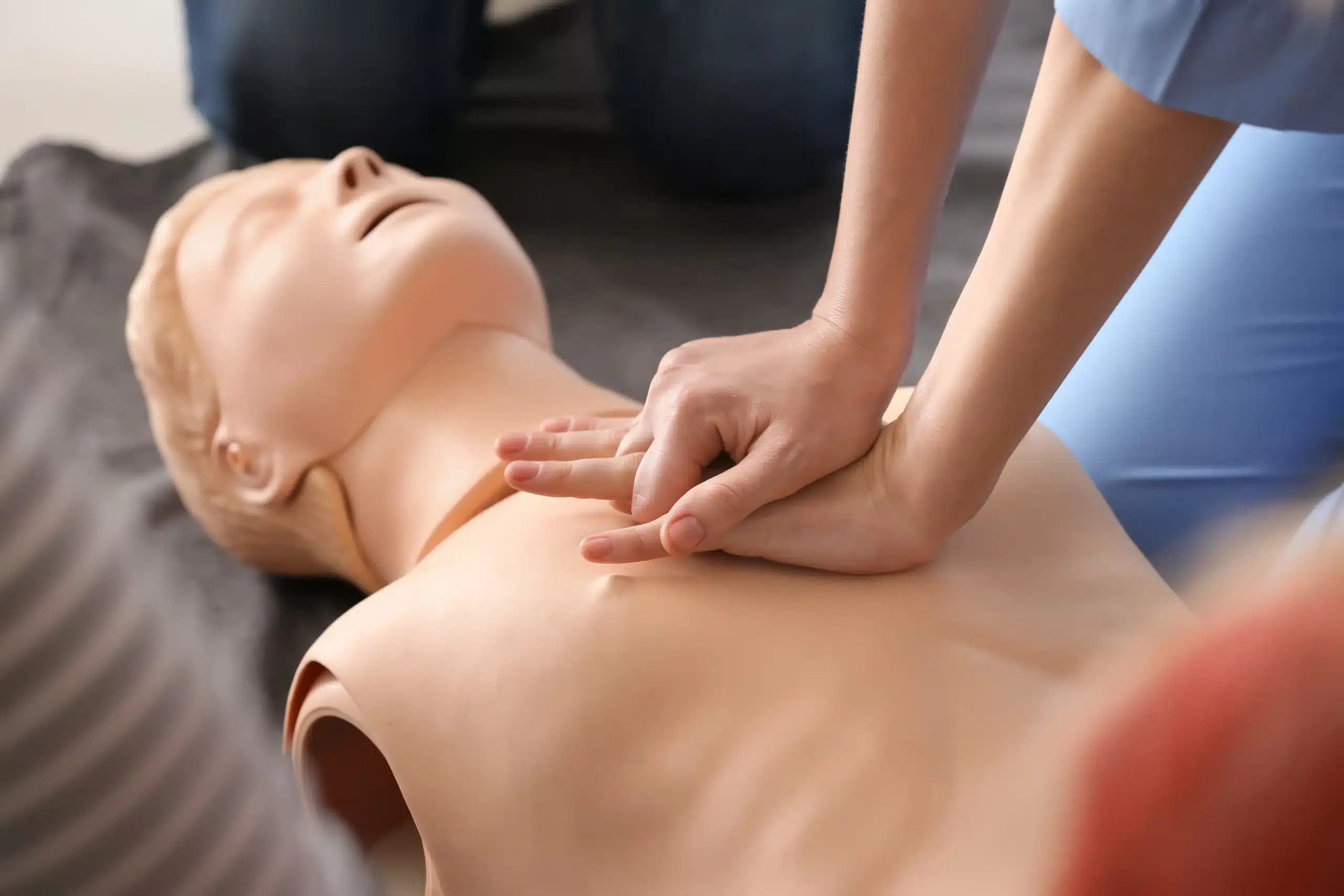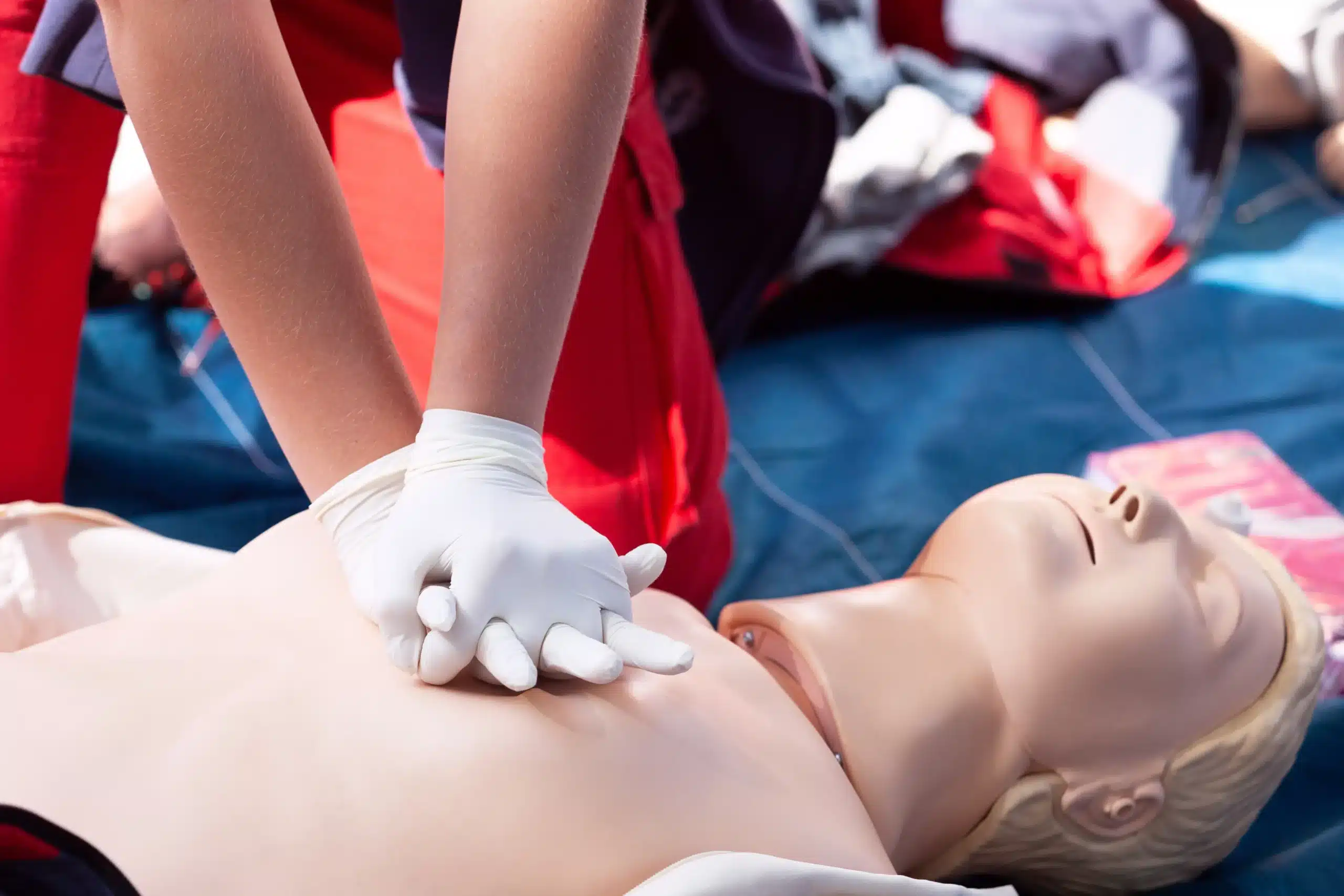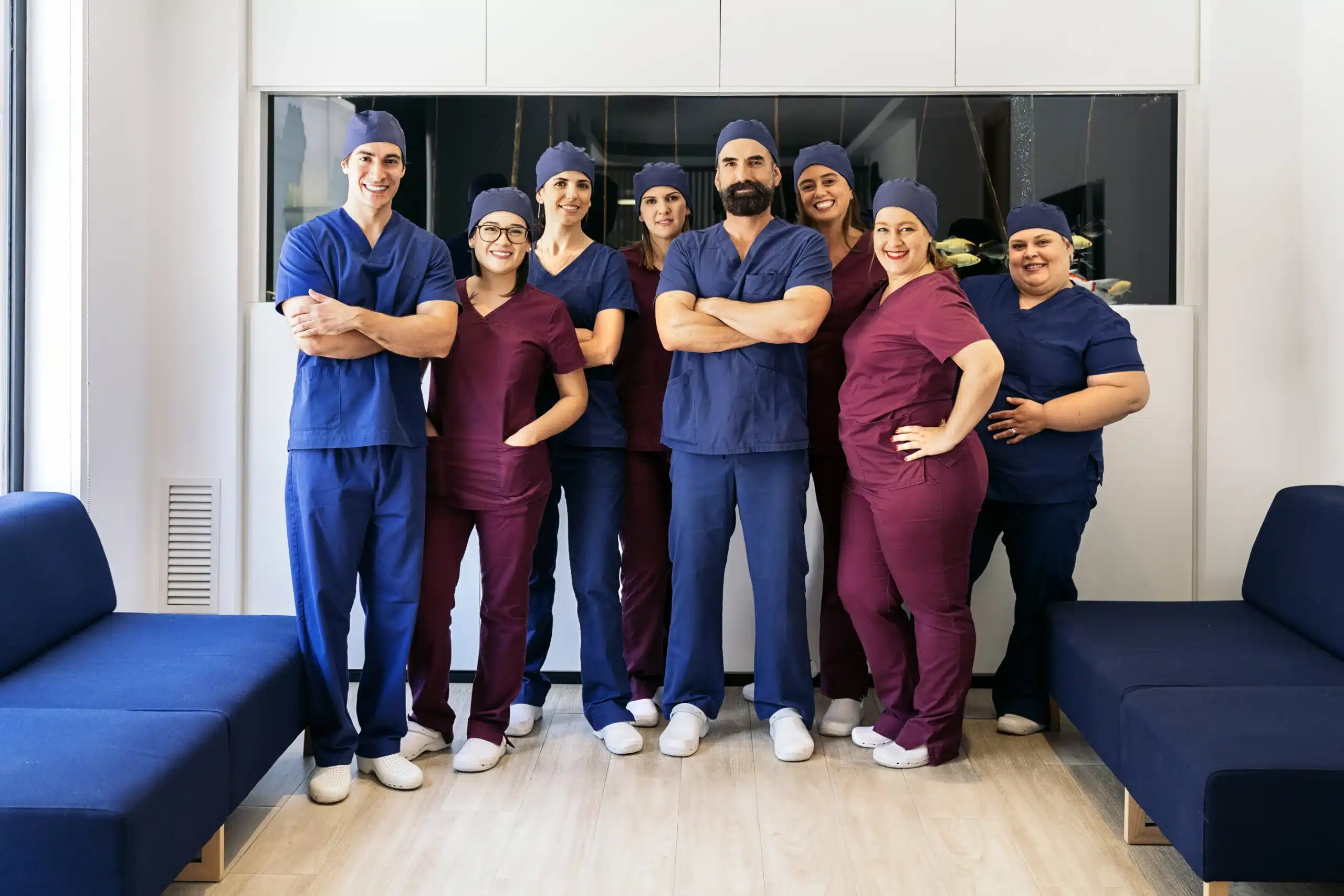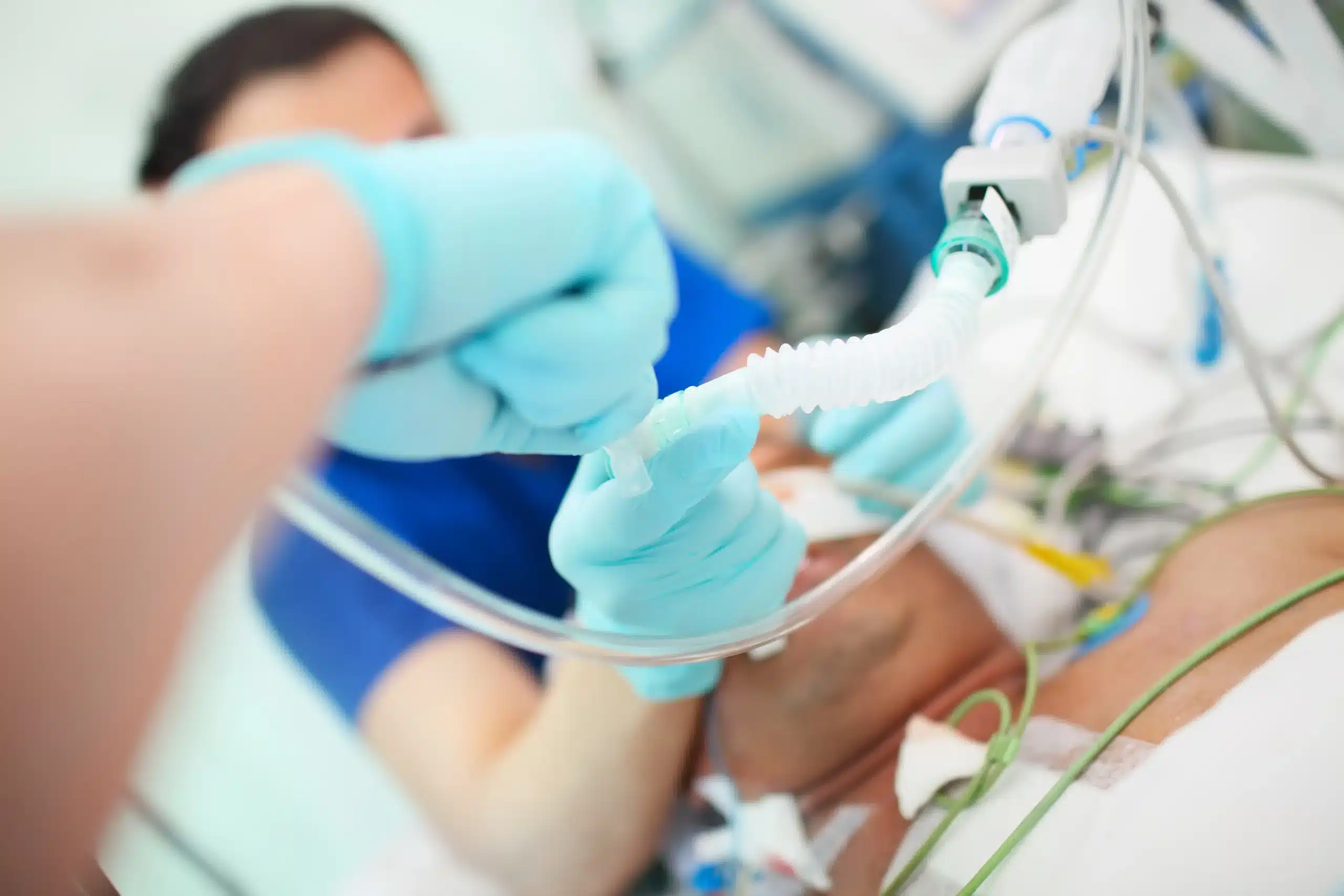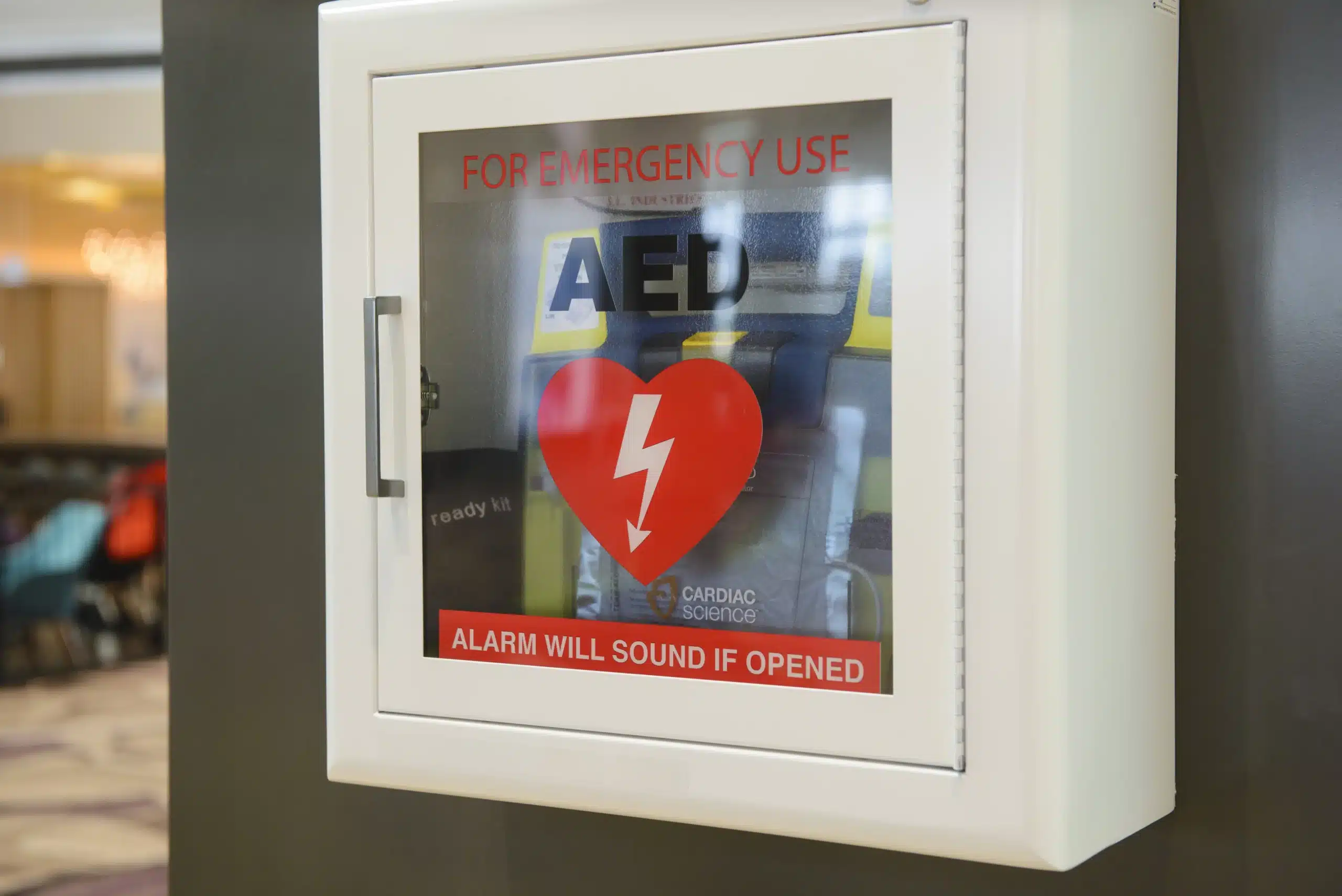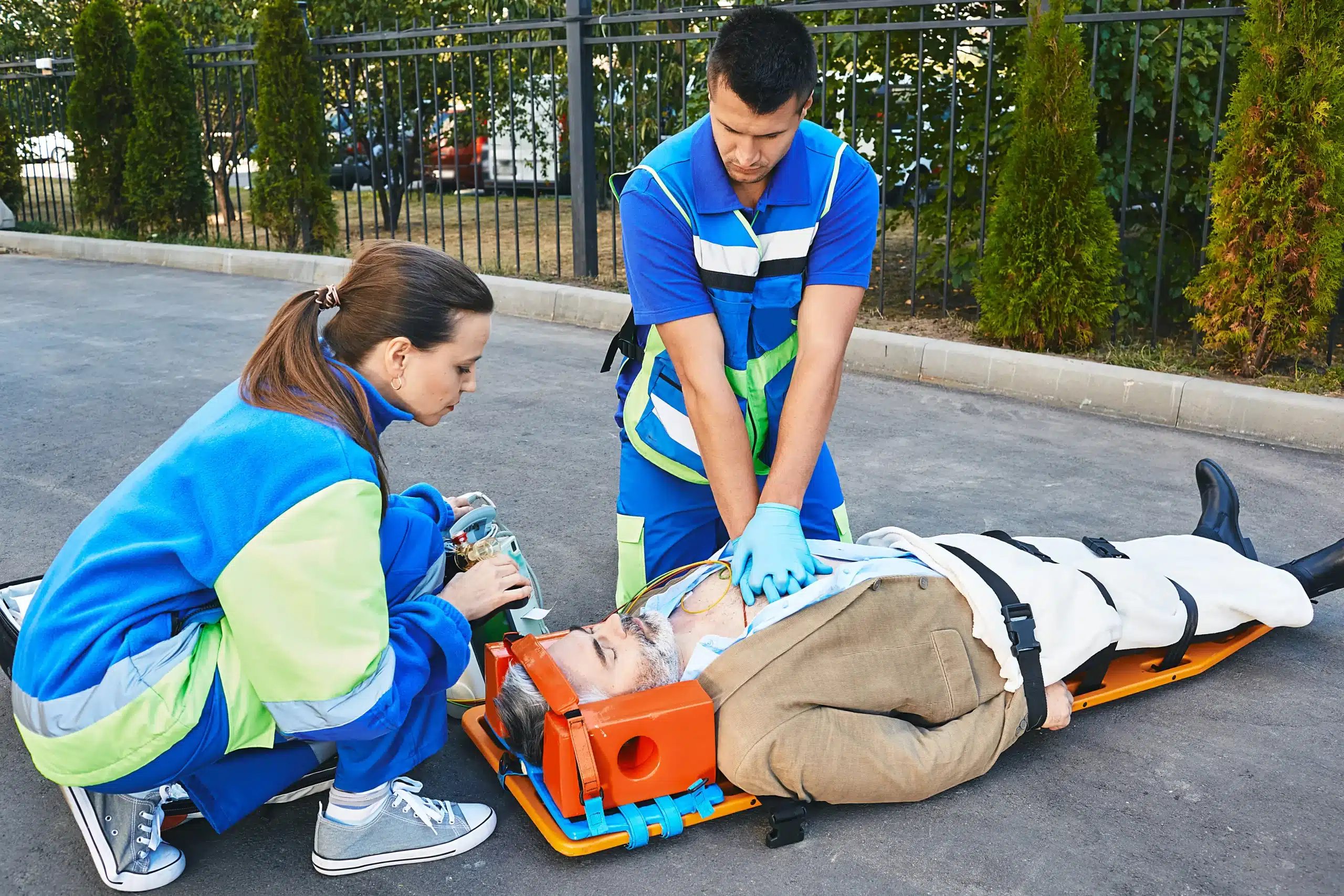Life is unpredictable, and emergencies can happen when we least expect them. Being equipped with life-saving skills like CPR can make all the difference in those critical moments. If you’re in Daly City and considering taking CPR courses, this guide is your roadmap. We’ll explore the various CPR and first-aid training options available, including BLS, ACLS, and PALS certifications. We’ll discuss the benefits of each course, the costs involved, and how to find a reputable training provider in Daly City. We’ll also cover the importance of renewing your certification and maintaining your skills. Whether you’re a healthcare professional, a parent, a teacher, or simply someone who wants to be prepared, this guide will help you find the perfect CPR course in Daly City to meet your needs.
Key Takeaways
- CPR knowledge empowers you to save lives: Learning CPR, whether for professional or personal reasons, equips you to respond effectively in emergencies.
- Find the right CPR course for your needs: Explore various CPR and first-aid certifications, including BLS, ACLS, and PALS, to match your specific goals.
- Stay prepared by maintaining your CPR skills: Regular practice and timely certification renewals are crucial for confident and effective emergency response.
What is CPR and Why is it Important in Daly City?
CPR, which stands for cardiopulmonary resuscitation, is a life-saving technique used when someone’s breathing or heartbeat has stopped. This can happen due to a heart attack, near drowning, or other emergencies. CPR combines chest compressions and rescue breaths to restore blood circulation and oxygen flow to the brain and other vital organs. Learning CPR can quite literally mean the difference between life and death.
More than 350,000 cardiac arrests occur outside of hospitals each year in the US. Immediate CPR can double or even triple a person’s chance of survival. In a busy city like Daly City, being prepared for such an event can have a significant impact. CPR certification empowers you to respond effectively in these critical situations. Whether you’re a healthcare professional, a parent, a teacher, or simply someone who wants to be prepared, knowing CPR can give you the confidence to act quickly and potentially save a life. Daly City offers a range of CPR classes to fit your needs and schedule. The importance of these skills can’t be overstated. Learning CPR isn’t just about acquiring a skill; it’s about becoming a vital link in the chain of survival.
CPR Courses in Daly City: Which One is Right for You?
Choosing the right CPR course can feel overwhelming, but it doesn’t have to be. This guide breaks down the different types of CPR certification available in Daly City to help you find the perfect fit.
BLS for Healthcare Providers
BLS (Basic Life Support) certification is essential for healthcare providers. It equips them with the skills to respond to life-threatening emergencies, including cardiac arrest and respiratory distress. BLS courses cover techniques like chest compressions, rescue breaths, and AED use. Many training providers in Daly City offer BLS classes seven days a week to accommodate busy schedules.
CPR and First Aid for Everyone
CPR and first aid skills are valuable for everyone, not just medical professionals. Knowing how to respond in an emergency can make a real difference. CPR and first-aid certification courses in Daly City offer comprehensive training with hands-on practice. These courses empower you to act quickly and effectively until professional help arrives. Learn more at Daly City CPR Classes.
ACLS
For healthcare providers in advanced settings, ACLS (Advanced Cardiovascular Life Support) certification goes beyond BLS. These courses cover managing cardiac arrest and other cardiovascular emergencies. ACLS training includes advanced algorithms, pharmacology, and team dynamics, preparing providers to lead resuscitation efforts. This guide offers more information about ACLS courses in Daly City.
PALS
PALS (Pediatric Advanced Life Support) courses focus on the specific needs of infants and children in medical emergencies. These courses are essential for healthcare providers working in pediatrics, emergency rooms, or intensive care units. PALS training covers respiratory management, cardiac emergencies, and shock. Daly City CPR Classes offers more information on PALS and other courses.
First Aid
First aid training is a practical skill for anyone. From minor injuries to more serious situations, knowing first aid can be invaluable. First aid courses in Daly City cover wound care, bleeding control, and recognizing medical emergencies. These courses provide the knowledge and confidence to respond effectively. This guide offers more information on CPR and first aid classes in Daly City.
CPR Certification: What You Need to Know
CPR certification is more than just a credential—it signifies your readiness to respond to emergencies. This section covers key aspects of certification, from the benefits of American Heart Association (AHA) certification to renewal requirements.
AHA Certification
AHA certification ensures your training reflects the most current research and guidelines. Choosing an AHA-certified CPR course, like those offered by Safety Training Seminars, gives you confidence in the quality of your training. This AHA BLS course equips healthcare providers with the skills to respond to cardiopulmonary emergencies. AHA certification is widely recognized, making it valuable for healthcare professionals and anyone seeking high-quality CPR training. For those outside the healthcare field, our CPR and First Aid certification course offers comprehensive training.
Course Length and Certification Validity
CPR course length varies depending on the type and learning objectives. Generally, CPR certification is valid for two years. Renewal is essential to stay current with the latest CPR guidelines and maintain your skills. Explore our RQI programs for convenient renewal options.
Renewing Your Certification
Renewing your CPR certification is straightforward. Safety Training Seminars offers various renewal courses to fit your schedule. We recommend checking our low price guarantee to ensure you receive the best value. Staying current with your certification demonstrates your commitment to providing excellent care and ensures you’re prepared for emergencies. We offer recertification options for various courses, including ACLS and PALS.
CPR Course Costs & Value in Daly City
Knowing the price range for CPR courses and understanding their value helps you make informed decisions. This section breaks down course pricing, potential discounts, and the long-term benefits of CPR training in Daly City.
Course Pricing
CPR course costs in Daly City vary based on the course type and the training provider. Basic CPR and First Aid courses are generally more affordable, while advanced courses like ACLS and PALS for healthcare providers usually cost more. Daly City CPR classes offer high-quality training at competitive rates. For the latest pricing and course packages, visit Safety Training Seminars.
Discounts and Guarantees
Many training centers offer discounts for group registrations, students, or returning customers. Providers like Safety Training Seminars offer a low-price guarantee, ensuring you receive excellent value. They also offer flexible scheduling options, including weekend and evening classes, to accommodate busy schedules. Safety Training Seminars offers classes seven days a week.
Invest in Life-Saving Skills
Think of CPR training as an investment, not an expense. Learning CPR empowers you to act effectively during medical emergencies, potentially saving a life. Whether you’re a healthcare professional maintaining certifications or want to learn basic life support, the skills you gain are invaluable. Daly City CPR training gives you the confidence and knowledge to make a difference in critical situations. Explore your options and find the right CPR class to suit your needs.
Find CPR Courses Near You in Daly City
Finding the right CPR course in Daly City doesn’t have to be a challenge. With various options available, you can find a course that fits your schedule, learning style, and certification needs.
Safety Training Seminars
Safety Training Seminars offers a comprehensive selection of American Heart Association (AHA) courses, including BLS, ACLS, PALS, and CPR and First Aid training, right here in Daly City. This means you can find all the essential life-saving certifications you need in one convenient location. They also offer the RQI program, a great option for healthcare professionals looking to renew their certifications. Check out their website for more information on their BLS, ACLS, CPR and First Aid courses, and their convenient RQI program.
Convenient Locations
Safety Training Seminars’ Daly City location at 333 Gellert Blvd, Suite 215, Daly City, CA 94015, offers courses daily from 8 am to 10 pm. This flexible schedule makes it easier to fit CPR training into your busy life. Their commitment to accessibility, combined with their low price guarantee, ensures that this important training is within reach for more people in the community.
Online & Blended Learning
For healthcare professionals in Daly City, the AHA’s RQI (Resuscitation Quality Improvement) program offers a modern and efficient path to BLS, ACLS, and PALS certification. This blended learning approach combines online modules with in-person skills sessions, providing the flexibility to learn at your own pace while still receiving hands-on training. This format is particularly beneficial for busy medical professionals who need to maintain their certifications.
Register for a CPR Course: What to Expect
So, you’re ready to learn CPR? Great! Registering for a course is straightforward, and we’ll walk you through what you can expect before, during, and after your class.
Easy Registration
Signing up for a CPR class should be a breeze. Look for providers like Safety Training Seminars who offer streamlined online registration. You should be able to easily view available course dates, compare class times, and choose the option that best fits your schedule. Many providers also offer flexible scheduling to accommodate busy lifestyles. Look for clear pricing information upfront to avoid surprises. A simple, user-friendly registration process gets you enrolled quickly and efficiently.
Course Structure and Practice
CPR courses blend theory and hands-on practice. Expect a combination of instructor-led discussions, demonstrations, and interactive exercises. You’ll learn the fundamentals of CPR, including chest compressions, rescue breaths, and how to recognize the signs of a cardiac arrest. High-quality training emphasizes hands-on practice, giving you the opportunity to build confidence and muscle memory in a safe learning environment. You’ll work with training manikins to simulate real-life scenarios, allowing you to apply your knowledge and develop the skills to respond effectively in an emergency. This practical experience is crucial for mastering proper technique and feeling prepared to act quickly and confidently if ever faced with a real emergency.
Skills Assessment & Certification
At the end of your CPR course, you’ll participate in a skills assessment to demonstrate your proficiency. This typically involves performing CPR on a manikin in front of your instructor. Successful completion earns you an official CPR certification card. The American Heart Association offers various certification programs, including BLS, ACLS, and PALS. These certifications are widely recognized and demonstrate your commitment to providing high-quality care. For healthcare professionals, the RQI program offers a streamlined path to maintain your certifications. Your instructor will provide details about the specific certification process and card issuance.
Benefits of CPR Training
Learning CPR offers significant advantages, from personal preparedness to career advancement and community impact. Whether you’re a healthcare professional, a concerned parent, or simply someone who wants to be prepared, understanding these benefits can motivate you to take a CPR course.
Be Prepared for Emergencies
CPR certification equips you to respond effectively during medical emergencies. While we all hope never to face such situations, being trained allows you to act quickly and confidently if someone experiences cardiac arrest or a breathing emergency. This immediate action can significantly improve the chances of survival while waiting for professional medical help. CPR training provides the knowledge and skills to make a difference in these critical moments. High-quality programs, like those offered at Daly City CPR Classes, ensure you learn the latest techniques and gain the confidence to apply them effectively.
Advance Your Career
For many healthcare providers, BLS/CPR certification is often a job requirement. Maintaining a current certification demonstrates your commitment to patient care and can create opportunities for career growth. Even if not mandatory in your field, CPR training strengthens your resume and makes you a more competitive candidate. BLS training offers numerous benefits to healthcare professionals, including increased preparedness and confidence, and expanded career advancement opportunities. It shows potential employers you’re dedicated to professional development and possess essential life-saving skills.
Build a Safer Community
Learning CPR isn’t just about individual preparedness; it’s about contributing to a safer community. When more people are trained, the likelihood of someone nearby being able to assist during a medical crisis increases. This creates a network of support that can dramatically improve outcomes. Taking a CPR and First Aid class is an investment in the health and safety of your community. By becoming CPR certified, you become a valuable resource and contribute to a more resilient and prepared community.
Choose the Right CPR Course
Choosing the right CPR course depends on your specific needs and goals. Whether you’re a healthcare professional, a concerned parent, or simply want to be prepared for emergencies, there’s a course out there for you. Let’s break down the options to help you make the best decision.
Meet Professional Requirements
For many healthcare providers, BLS/CPR certification is a job requirement. It’s essential for nurses, doctors, and other medical professionals. BLS certification demonstrates your commitment to patient safety and equips you with the skills to respond effectively in critical situations. If you’re in the healthcare field, check with your employer or licensing board to determine the specific BLS/CPR certification you need. Safety Training Seminars offers BLS certification courses designed to meet these professional standards. The courses cover essential life-saving techniques and provide the credentials you need to advance your healthcare career.
Options for Non-Healthcare Professionals
Even if you’re not in healthcare, learning CPR is a valuable skill. CPR and first-aid training empower you to respond confidently during emergencies, potentially saving a life. Safety Training Seminars offers CPR and first-aid certification courses tailored for non-healthcare professionals, covering essential life-saving techniques. These courses are perfect for teachers, coaches, childcare providers, parents, and anyone who wants to be prepared for the unexpected. They provide individuals with the knowledge and skills to assist in various emergency situations.
Specialized Training
Beyond basic CPR and first aid, there are specialized courses for specific situations and professional needs. ACLS (Advanced Cardiovascular Life Support) is designed for healthcare professionals who manage cardiopulmonary arrest and other cardiovascular emergencies. PALS (Pediatric Advanced Life Support) focuses on the specialized needs of infants and children. Safety Training Seminars offers both ACLS and PALS courses for those seeking advanced certifications. Additionally, for healthcare professionals looking to maintain their certifications, the RQI program offers a flexible and convenient way to stay up-to-date with the latest guidelines and best practices for BLS, ACLS, and PALS.
Get CPR Certified: Overcome the Challenges
Getting CPR certified can feel like a hurdle, but with the right approach, it’s easily manageable. Let’s break down some common challenges and how to overcome them.
Find a Class Time That Works
Juggling work, family, and other commitments makes finding time for anything extra tricky. Luckily, many CPR training providers offer classes seven days a week, including weekends and evenings. This flexibility makes it much easier to find a time that fits your busy schedule. For example, Safety Training Seminars offers a variety of CPR and first-aid courses with flexible scheduling to accommodate busy lifestyles. Look for providers in your area with similar options to find the perfect fit.
Understand Course Options
Not all CPR courses are created equal. There’s a range of courses designed to meet different needs. Basic CPR and first-aid certification is a great starting point for anyone. Healthcare providers, on the other hand, often require more advanced training like BLS, ACLS, or PALS. Take some time to research the different options and choose the course that aligns with your personal or professional goals. You can also explore options like RQI for maintaining your skills.
Manage Costs & Find Value
Cost is a valid concern for many. However, think of CPR training as an investment in life-saving skills. Look for providers who offer competitive pricing without compromising quality. Safety Training Seminars offers a low-price guarantee, ensuring you get the best value for your money. Remember, the ability to help someone in a medical emergency is priceless.
Maintain Your CPR Skills
Learning CPR is a smart move, but it’s not a one-time thing. To really make a difference, you need to keep your skills fresh and your knowledge current. Here’s how:
Renew Your Certification
CPR certifications are typically valid for two years. Make sure you renew your certification before it expires to stay prepared for emergencies. Setting a reminder on your phone or calendar can help you stay on track. A lapse in certification could mean you’re not recognized as a qualified responder. Check for renewal courses in your area.
Practice Regularly
Even if your certification is current, regular practice is key. Think of it like any other skill—the more you use it, the better you become. Hands-on practice builds muscle memory and confidence, allowing you to react effectively under pressure. Consider refresher courses or practicing with friends or family to keep those skills sharp. Look for classes that emphasize hands-on training.
Stay Up-to-Date on CPR Guidelines
CPR guidelines can change as medical knowledge evolves. Staying informed about the latest techniques ensures you’re providing the most effective care possible. Subscribing to relevant newsletters or checking in with organizations like the American Heart Association can help you stay on top of any updates. This is especially important for healthcare providers, who need to maintain the highest standards of care. RQI programs are a great way for healthcare professionals to stay current.
Related Articles
- CPR Classes in Daly City: Your Complete Guide – San Mateo CPR Classes
- CPR Training in Daly City: Your Complete Guide – San Mateo CPR Classes
- American Heart Association (AHA) Courses in Daly City – San Mateo CPR Classes
- CPR Certification in San Mateo: Your Guide – San Mateo CPR Classes
- First Aid Training Courses in San Mateo: A Practical Guide – San Mateo CPR Classes
Frequently Asked Questions
What’s the difference between BLS and CPR?
CPR is the core life-saving technique involving chest compressions and rescue breaths. BLS (Basic Life Support) builds upon CPR, adding essential skills like using an AED and managing obstructed airways. BLS certification is typically required for healthcare providers and those in professional rescuer roles. CPR/AED training is suitable for anyone who wants to learn basic life-saving skills.
How often do I need to renew my CPR certification?
CPR certifications are generally valid for two years. It’s important to renew your certification before it expires to maintain your skills and ensure you’re recognized as a qualified responder. Check with your employer or certifying organization for specific renewal requirements.
What if I’m nervous about performing CPR in a real emergency?
It’s completely normal to feel apprehensive about using CPR in a real-life situation. That’s why hands-on practice during training is so important. Quality CPR courses provide ample opportunities to practice on manikins in a safe and supportive environment. This helps build muscle memory and confidence, allowing you to react more effectively under pressure.
Are online CPR courses as good as in-person classes?
While online CPR courses offer convenience and flexibility, they often lack the crucial hands-on practice component. In-person classes provide the opportunity to work with manikins, receive feedback from instructors, and practice skills in a simulated environment. This hands-on experience is essential for developing the muscle memory and confidence needed to perform CPR effectively in a real emergency. Blended learning options, combining online modules with in-person skills sessions, can offer a good balance.
How do I choose a reputable CPR training provider in Daly City?
Look for providers offering certification from recognized organizations like the American Heart Association. Check reviews and testimonials to gauge the quality of instruction and student experience. Consider factors like class size, location, scheduling options, and cost. A reputable provider will offer clear information about their courses, instructors, and certification process.
